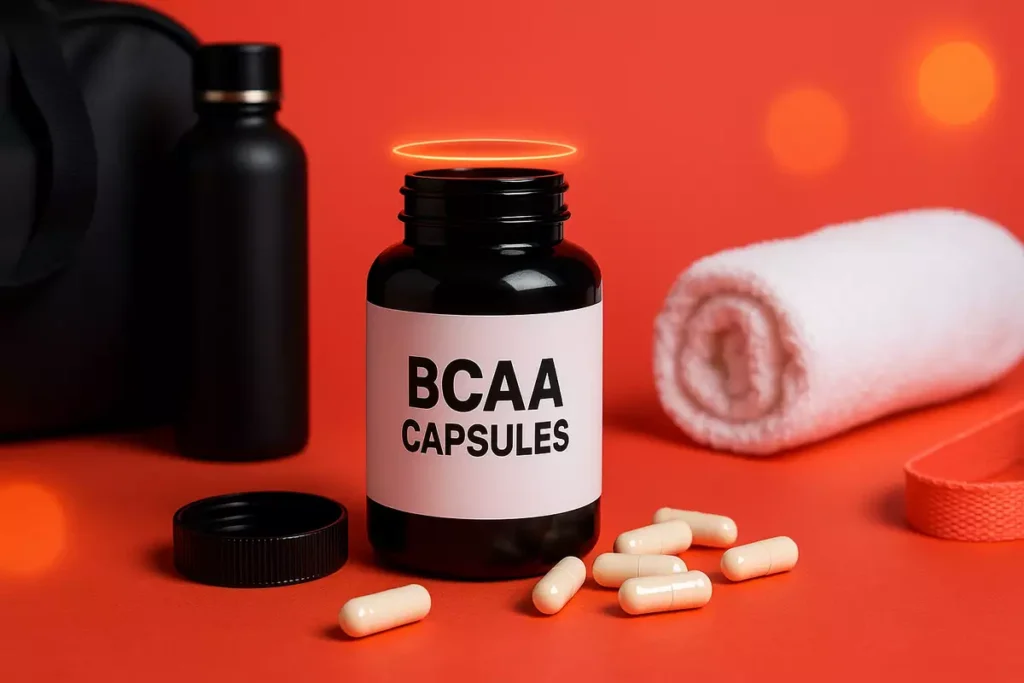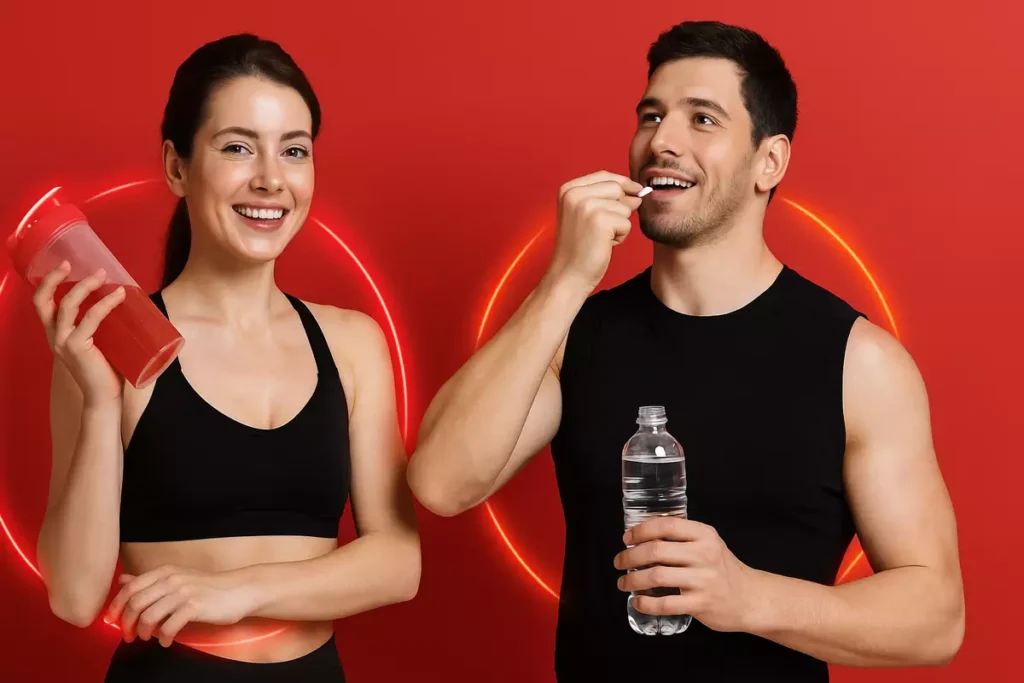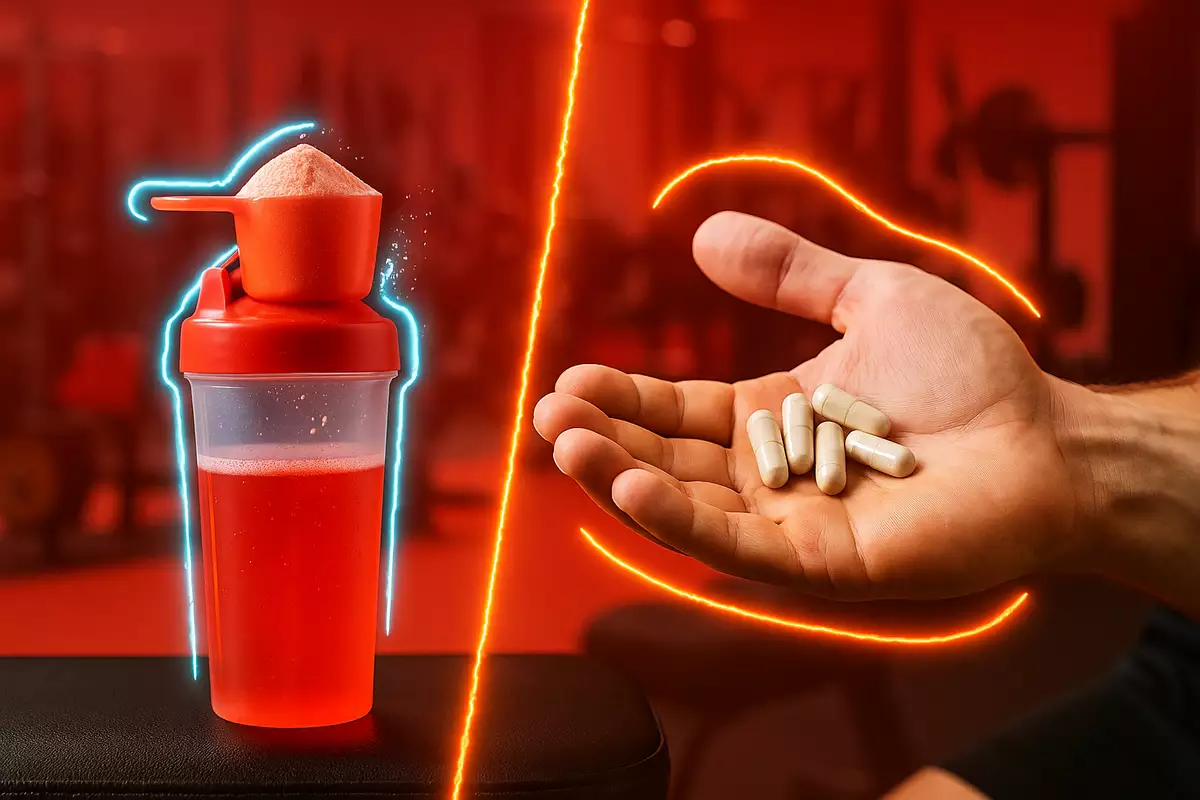Trying to decide between BCAA powder vs capsules? You’re not alone.
Both forms promise muscle support, faster recovery, and less fatigue—but they work differently.
As a fitness coach who’s tested both and coached dozens through real-world results, I’m here to break it down.
In this guide, you’ll learn which form actually performs better, when to use each, and how to match it to your goals.
Let’s find the right fit for your training style—no fluff, just results-driven advice.
Table of contents
BCAA Powder vs Capsules – Quick Answer
Let’s cut to the chase. If you’re looking for better absorption, flexible dosing, and visible impact during training, BCAA powder usually wins.
It mixes easily with other supplements, absorbs faster, and lets you adjust the serving based on your needs.
That said, BCAA capsules have their place—especially for convenience, travel, or anyone who hates mixing powders.
I’ve used both, and depending on the phase of my training or lifestyle, I’ve switched back and forth. But when it comes to performance, powder often comes out on top.
If you’re unsure which BCAA ratio to choose (like 2:1:1 vs 4:1:1), check out this detailed guide.
What Are BCAAs and Why Supplement Them?

Branched-Chain Amino Acids (BCAAs) include leucine, isoleucine, and valine—three essential amino acids your body can’t produce on its own.
They’re key players in muscle recovery, endurance, and reducing soreness after intense training.
As a coach and lifter, I’ve relied on BCAAs during heavy workout blocks—especially when cutting or training fasted.
They help preserve muscle, fight fatigue, and keep me going hard set after set. You can learn more in this muscle preservation guide and this in-depth breakdown article.
Pros and Cons of BCAA Powder
Why I (and many of my clients) prefer powder:
- Faster absorption — especially during long sessions when your body needs quick support
- Mixable — blends well with creatine, caffeine, or electrolytes
- Flavored options — helps boost water intake and feels like a refreshing intra-workout drink
- Customizable dosing — I can add more or less depending on the session
But it’s not perfect.
Some powders have an artificial aftertaste or cause minor bloating (I ditched one brand years ago for that reason).
And let’s be real—it’s not the most travel-friendly option when you’re out and about.
If you’re unsure whether to go for a flavored or unflavored version, this flavor comparison article breaks it down clearly.
Pros and Cons of BCAA Capsules

Capsules shine when you want something simple and portable. I often recommend them for my traveling clients or those who don’t want the fuss of powders.
Here’s what they offer:
- Precise dosage — each capsule contains a fixed amount
- Zero taste — great if you hate the artificial flavor of some powders
- Convenience — toss a few in your gym bag or suitcase and you’re good to go
But there are downsides too.
You usually need to take 4–6 capsules to hit an effective dose, which can feel like swallowing a handful of pills.
And absorption is slower than powder, which makes them less ideal as an intra-workout aid.
Want to know how much BCAA is right for you? This dosage guide helps you find the sweet spot.
When to Choose Powder vs Capsules
It really depends on your goals and lifestyle.
Use BCAA Powder if:
- You train hard and want intra-workout recovery
- You stack supplements like creatine, EAAs, or pre-workout
- You want adjustable dosing
- You train in hot environments and want to boost hydration
Use BCAA Capsules if:
- You travel often or are always on the go
- You prefer no taste or mixing
- You take BCAAs pre- or post-workout, not during
- You hate carrying shaker bottles
Let me give you a quick real-life contrast:
My client Sarah from Sweden trains legs twice a week and felt extreme soreness.
After switching to a mango-flavored BCAA powder she sipped during workouts, she felt “less wrecked” the next day.
Tomás from Spain, however, travels weekly and prefers capsules because he can just pop them with water before hitting hotel gyms.
Both are right—it’s all about what fits your rhythm best.
If you’re vegan or plant-based, don’t miss this guide to vegan BCAAs.
And for endurance athletes or runners, this article dives deep into how BCAAs support stamina and performance.
Final Verdict – Which One Is Better for You?

From a pro trainer’s perspective—and as someone who’s personally cycled through both—BCAA powder is better for most active lifters.
It hits faster, blends easily, and becomes part of your workout ritual.
But if you’re after simplicity, hate flavored supplements, or need something travel-friendly, capsules still work great.
For beginners, I usually suggest starting with powder. It helps build good supplement habits and feels more rewarding to drink during a session.
I remember James from Australia, a beginner I coached, saying his flavored BCAA drink became a ritual—it motivated him to stay consistent and hydrated.
Related Reads for Smart Supplementing
- Best Time to Take BCAAs for Fat Loss & Muscle Gain
- EAAs vs BCAAs: Which One Should You Really Use?
- Top Pre-Workout Ingredients That Actually Work
Coach’s Note:
Whatever form you choose, consistency matters more than format.
Make it a habit, pair it with smart training, and your muscles will thank you.



Leave a Reply